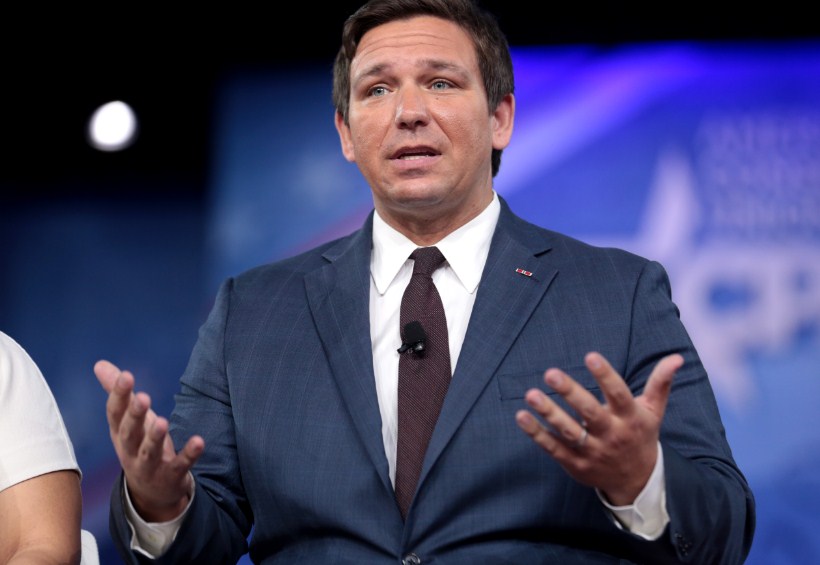Florida Governor Ron DeSantis has announced his support for using eminent domain to acquire land for the Keystone XL pipeline project, which was canceled by President Joe Biden on his first day in office. DeSantis said he believes the pipeline is vital for the nation’s energy security and economic growth, and he accused Biden of bowing to the pressure of environmental activists.
What is eminent domain and how does it work?
Eminent domain is the power of the government to take private property for public use, with compensation to the owner. It is usually used for projects such as roads, bridges, schools, or airports. However, eminent domain can also be used for private projects that serve a public purpose, such as utilities, railways, or pipelines.
The process of eminent domain involves several steps, such as:
- The government or the private entity that wants to use the land must identify the property and its owner, and make a reasonable offer to buy it.
- If the owner refuses to sell, the government or the private entity can file a lawsuit to acquire the property through eminent domain.
- The court will then decide whether the project serves a public purpose and whether the offer is fair. If the court rules in favor of the eminent domain, the owner will receive the compensation and the property will be transferred to the government or the private entity.
- If the owner disagrees with the court’s decision, he or she can appeal to a higher court.

Why does DeSantis want to use eminent domain for the Keystone pipeline?
DeSantis said he wants to use eminent domain to revive the Keystone pipeline project, which would carry oil from Canada to the Gulf Coast of the United States. The project was first proposed in 2008, but faced years of legal and environmental challenges. In 2015, President Barack Obama rejected the project, citing its impact on climate change. In 2017, President Donald Trump reversed Obama’s decision and approved the project. However, in 2021, President Joe Biden canceled the project again, saying it was not consistent with his administration’s policy to combat climate change and create clean energy jobs.
DeSantis argued that Biden’s decision was a mistake, and that the Keystone pipeline would benefit the country in many ways, such as:
- Creating thousands of jobs and boosting the economy
- Enhancing the energy security and independence of the United States
- Reducing the dependence on foreign oil and lowering gas prices
- Supporting the friendly relationship with Canada, a key ally and trading partner
DeSantis said he is willing to work with other Republican governors and lawmakers to use eminent domain to acquire the land needed for the pipeline, and to challenge Biden’s authority to cancel the project. He said he believes the pipeline serves a public purpose and that the owners of the land would receive fair compensation.
What are the arguments against using eminent domain for the Keystone pipeline?
The opponents of the Keystone pipeline project, including environmental groups, Native American tribes, landowners, and some Democrats, have raised several arguments against using eminent domain for the project, such as:
- Violating the property rights and the sovereignty of the landowners and the tribes
- Damaging the environment and the wildlife habitats along the pipeline route
- Increasing the greenhouse gas emissions and contributing to climate change
- Posing the risk of oil spills and leaks that could contaminate the water sources and the soil
- Benefiting a foreign company and not the American public
The opponents of the project have also questioned the need and the feasibility of the project, given the decline in oil demand and the rise of renewable energy sources. They have also argued that the project would not create as many jobs or lower gas prices as claimed by the supporters.
What are the chances of success for DeSantis’ plan?
DeSantis’ plan to use eminent domain for the Keystone pipeline project faces many legal and political hurdles. First, he would need the cooperation of other states along the pipeline route, such as Montana, South Dakota, Nebraska, Kansas, Oklahoma, and Texas. Some of these states have already passed laws to protect the property rights of the landowners and to limit the use of eminent domain for private projects. Second, he would need the approval of the federal government, which has the authority to regulate interstate and international pipelines. Third, he would need to overcome the lawsuits and the protests from the opponents of the project, who have vowed to fight any attempt to revive the project.
DeSantis said he is confident that he can overcome these challenges, and that he is ready to take the case to the Supreme Court if necessary. He said he is determined to defend the interests of the American people and to stand up to the radical agenda of the Biden administration.

Comments